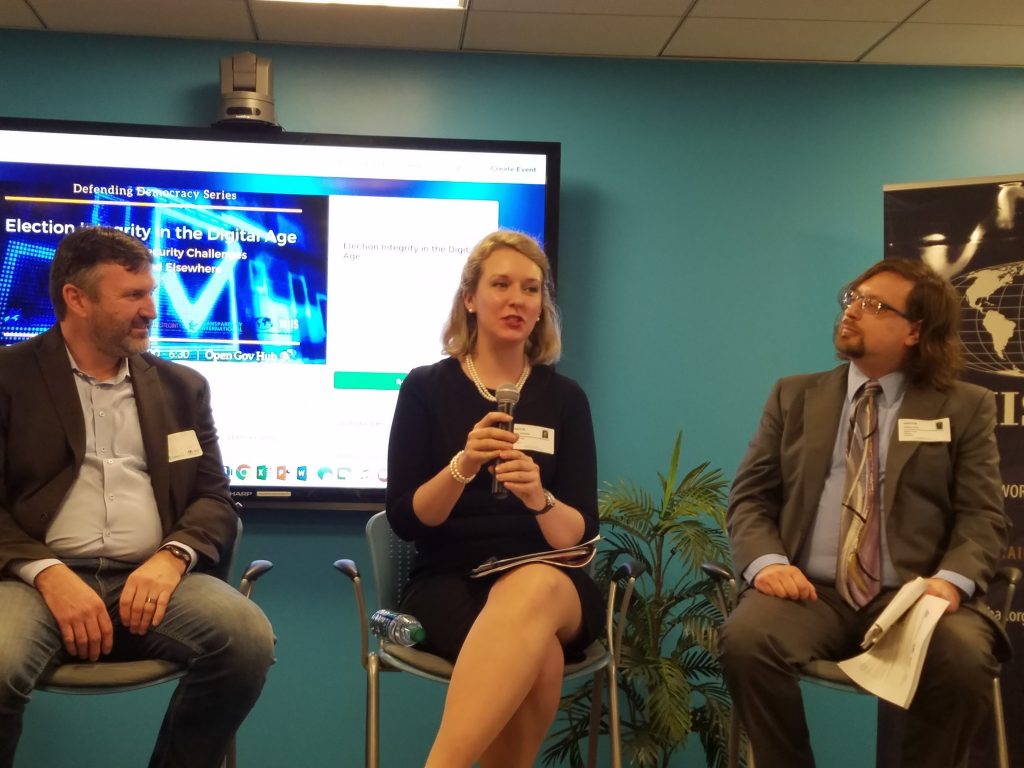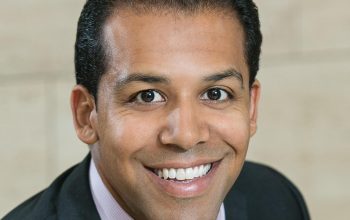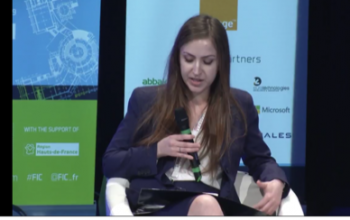
Spencer Beall, EPIC’s Administrative Law Fellow, was a panelist for a timely discussion on “Election Integrity in the Digital Age” sponsored by Women in International Security (WIIS). She began her remarks by simply stating “Technology comes at a huge price.” Beall explained that while technology has made the voting process more convenient, “it opens opportunities for hacking and physical vulnerabilities, as well as, ideological issues with elections.”
Evan Coren, a co-panelist with over 20 years of experience in elections, agreed with Beall’s assessment and provided some historical context. According to Coren, dating as far back as the 1600’s, bad actors have had interest in steering other countries’ election outcomes. He said this is not uncommon and there are vulnerabilities in every part of the election process – not just on voting day. For instance, he noted the use of deep fakes and campaigns of misinformation having a huge impact. Coren also noted how canvassing lists can be compromised, releasing voter’s names, addresses, phone numbers, and political affiliations – making people potential targets. Moreover, misdirecting something as simple as, the neighborhoods canvassers go for donations and support could influence an election.

Still, not all agreed that election integrity in the digital age is a serious issue – at least one that could not be overcome. Matthew Webster, Co-founder and Chief Technical Officer at HillCyber, said “archaic” voting machines in the U.S. may actually safeguard us from hackers. Webster said that election systems are not connected to the internet and are independent of each other. Accordingly, those intending to compromise the system would have to hack each machine and do it on a large enough scale to make a significant impact. Webster contends this is not likely to happen.
However, Beall noted that some states are now implementing online voting as a convenience for absentee voters and it presents a problem. “Direct hacking and remote hacking are really scary, but online voting is exacerbating the issue.” According to Beall, these online voting apps could be the target of manipulation – such as changing votes after they’ve been cast, or even publicly disseminating the way people vote.

Katherine Ellena, legal advisor for the International Foundation of Electoral Systems, says the challenge comes when trying to tackle these real concerns – while also maintaining voter faith in the election process. Ellena believes that even broaching the question leads to exploitation. She used elections in Kenya as an example. She described how just two weeks prior to the election a candidate began circulating rumors regarding the integrity of the voting process which was enough to seriously impact voter turnout. Furthermore, the losing candidate used this as a basis to challenge the election results.
All the panelists acknowledged this was a lot to unpack but did offer practical ways to combat the issue. Ellena suggested that there should be a national authority regulating elections and transparency in the process. Webster suggested using some of the many available technical solutions we already have in place to address the issues – such as two factor authentication for any web-based process. Finally, Beall said be S.M.A.R.T. to combat election integrity issues:
All these strategies will certainly help instill trust in the election process. Make sure you vote on Tuesday, November 6. 2018!
For more information visit www.EPIC.org. Defend Privacy. Support EPIC.



